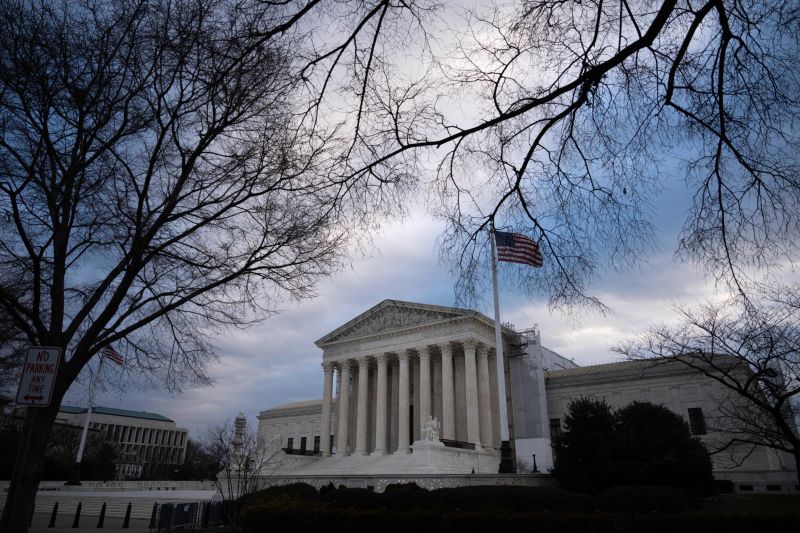
The Legal Battle: Former President Trump's Fight for Immunity

Former President Donald Trump is making a final plea to the Supreme Court to halt a trial over election subversion charges. The case raises questions about presidential immunity and the timing of legal proceedings.
Trump's Argument for Delay
In a 16-page filing, former President Donald Trump presented compelling reasons to delay the trial over election subversion charges. He emphasized the unprecedented speed at which the case is progressing and argued that such haste is unfair to any defendant, let alone a former president.
A view of the U.S. Supreme Court on Thursday morning January 4, 2024 in Washington, DC.
Trump asserted that former presidents should be granted immunity from such charges to prevent political reprisals post-office. Despite his strong stance, lower federal courts have not been swayed by this argument, setting the stage for the Supreme Court to weigh in on the matter.
Supreme Court's Dilemma
With Trump's final brief submitted, the Supreme Court faces a crucial decision regarding the timing of the trial. The justices must consider whether to grant Trump's emergency request to halt the proceedings or proceed with a trial as scheduled by the DC Circuit ruling.
The outcome of the Supreme Court's decision could either expedite the trial on election charges or lead to further deliberation through oral arguments, potentially delaying the trial significantly. The stakes are high as both sides await a ruling that could shape the course of legal proceedings.
Legal Battle Unfolds
In a legal showdown, Trump urged the Supreme Court to block a DC Circuit decision rejecting his immunity claims. He warned that without immunity, the presidency's integrity would be compromised.
On the opposing side, special counsel Jack Smith argued for a prompt trial, citing the gravity of the charges against Trump. Smith emphasized the importance of upholding democracy and ensuring accountability, particularly when a former president is accused of undermining the electoral process.





















